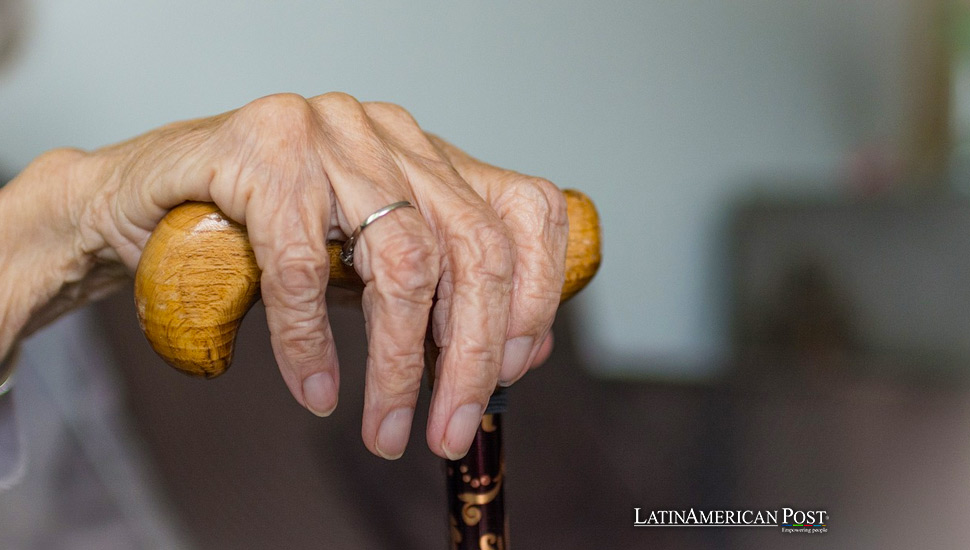Cuba’s Aging Crisis: Private Caregivers Fill the Gap

Cuba’s rapidly aging population and families dispersed by migration are creating a caregiving crisis. Private caregivers, once absent in the socialist system, are stepping in to meet a growing need – a trend that resonates across Latin America.
Cuba’s aging population faces a profound demographic shift exacerbated by economic hardship and emigration. As the traditional family support system erodes, private caregiving agencies like Tatamania emerge to fill critical gaps, reflecting broader trends across Latin America grappling with similar challenges.
Cuba, renowned for its strong sense of familial bonds and community support, is witnessing a seismic shift in its approach to eldercare. Economic scarcity and unprecedented levels of migration have upended traditional family dynamics, leaving a growing number of seniors without nearby relatives to provide essential support. In this evolving landscape, private caregiving agencies like Tatamania are emerging as vital lifelines for elderly Cubans, offering services previously unheard of in the country’s socialist system.
The Aging Crisis and Exodus
With nearly a quarter of its population now composed of seniors, Cuba is confronting a demographic crisis compounded by record-breaking migration rates. Economic hardships and limited opportunities drive many younger Cubans to seek better prospects abroad, leaving behind an aging population needing care and support. This exodus disrupts the traditional model of family-centered eldercare, leaving many seniors vulnerable and isolated.
Tasmania, a pioneering private caregiving agency authorized in 2022 amid economic reforms allowing limited private enterprise, stands at the forefront of this shifting landscape. Across four provinces, Tatamania offers round-the-clock care to elderly, disabled, and chronically ill individuals, filling a critical gap left by the strained public healthcare system and dwindling family networks. However, despite its indispensable role, the agency’s services still need to be made available to the average Cuban, with its primary clientele comprising families abroad seeking care solutions for loved ones on the island.
Challenges and Evolving Models
While the Cuban government provides some support through convalescent homes and primary healthcare services, the scale of the aging population requires a multifaceted approach. Sociologist Niuva Avila, who studies aging in Cuba, emphasizes the need for diverse care options to meet the growing demand. Private agencies like Tatamania offer one piece of the puzzle, yet affordability and accessibility remain significant barriers for many Cubans.
Cuba’s experience with eldercare mirrors broader trends across Latin America, where nations grapple with similar demographic challenges and economic instability. In Mexico, government-subsidized adult daycares cater to working families unable to provide full-time care for elderly relatives. In Brazil, community-led volunteer networks offer companionship and support to isolated seniors. These diverse models reflect the region’s complex social and economic realities, highlighting the need for innovative solutions tailored to each country’s unique circumstances.
As Latin American nations navigate the intertwined challenges of aging populations, economic hardship, and evolving family dynamics, Cuba’s experience with private caregiving offers valuable insights. While private agencies like Tatamania provide essential services, they are only one part of a broader solution. Addressing the complex needs of aging populations requires collaborative efforts between government, civil society, and the private sector to ensure accessible, affordable, and compassionate care for all.
To address the growing demand for eldercare in Cuba, efforts must focus on expanding access and improving affordability. This includes initiatives to subsidize private caregiving services for low-income families and establish community-based support networks for isolated seniors. Additionally, investments in training programs for caregivers and improvements in healthcare infrastructure are essential to enhance the quality of care provided to elderly Cubans.
Building on the success of private caregiving agencies like Tatamania, the Cuban government should explore partnerships with non-profit organizations and international donors to expand access to eldercare services. By leveraging resources and expertise from diverse stakeholders, Cuba can develop comprehensive and sustainable solutions to meet the needs of its aging population.
Lessons for Latin America
Cuba’s experience with eldercare offers valuable lessons for other Latin American countries facing similar demographic challenges. As the region grapples with aging populations and economic instability, innovative approaches to eldercare are essential to ensure the well-being of seniors and support their families. By embracing diversity and collaboration, Latin American nations can build resilient and inclusive eldercare systems that meet all citizens’ needs.
Also read: Cuba’s Quest for Milk is a Reflection of Deepening Economic Crisis and International Solidarity
The future of eldercare in Cuba and Latin America depends on proactive measures to address the complex interplay of demographic shifts, economic factors, and social dynamics. By prioritizing the needs of seniors and investing in innovative solutions, countries can create inclusive and compassionate systems of care that uphold dignity, autonomy, and respect for older adults. As the region continues to evolve, embracing change and adapting to the growing needs of aging populations is essential, ensuring a brighter future for all.





